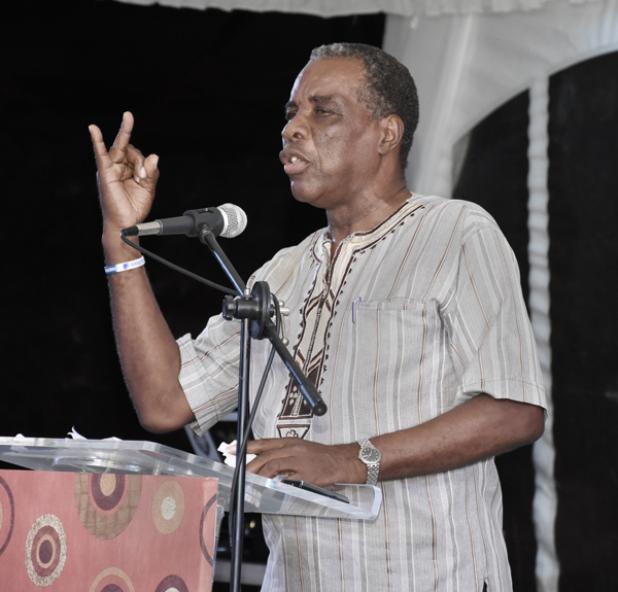
Veteran historian, Trevor Marshall.
Marshall delivers lecture on black businesses
Black-owned businesses started popping up during the 1900s.
This is according to veteran historian, Trevor Marshall, as he delivered the Emancipation lecture entitled “The Emergence of Black Businesses after 1900”, on Tuesday night. According to Marshall, working in the sugar cane fields as a black man was not a job that many people longed after, considering the conditions were not the best for any human being to work in. He noted that approximately 16 000 black men went to Panama and sent back the money they earned to Barbados.
When they accumulated enough funds, these black men became involved in purchasing sugar plantations and got involved in the business of producing cane between 1900-1951. However, in a world of 502 plantation systems, the 21 black-owned plantations did not seem like much. Regardless, he noted that the plantation world was now breached and black men began making themselves known in the business world.
One of the black business men he believed was worth mentioning was James A. Tudor, who was fired up by the racism he encountered to save his money and open up a dry goods store. Marshall reported that by 1938, Tudor had established 28 shops and by 1952, he had 35 shops – one in every parish. Tudor was just one example of the many black men that Marshall mentioned who were opening their own businesses.
“By the 1930s, you had a number of persons who were making a dent into that seemingly not concrete, but granite, wall of white dominance in our capital city. By the end of 1937, you had that drip, drip, drip, on the white concrete wall,” he said.
Additionally he noted, “What blacks did in that time period in terms of businesses was engage in subsistence production; and some engaged in particular pursuits which later became businesses.” Even though many of these businesses failed, there were still some that flourished.
He mentioned that 1937 was “a great leap forward for black people” as black men decided to diversify and open small stores and businesses. He said that 18 years later, when Hurricane Janet hit, the catastrophic event produced people called “storm carpenters and masons” and they began fixing the different things that Janet had destroyed.
“So if you look at the 1900s to the 1960s, you would see some growth for black men; some stumbling blocks were put and some actual reversals happened,” he said.
